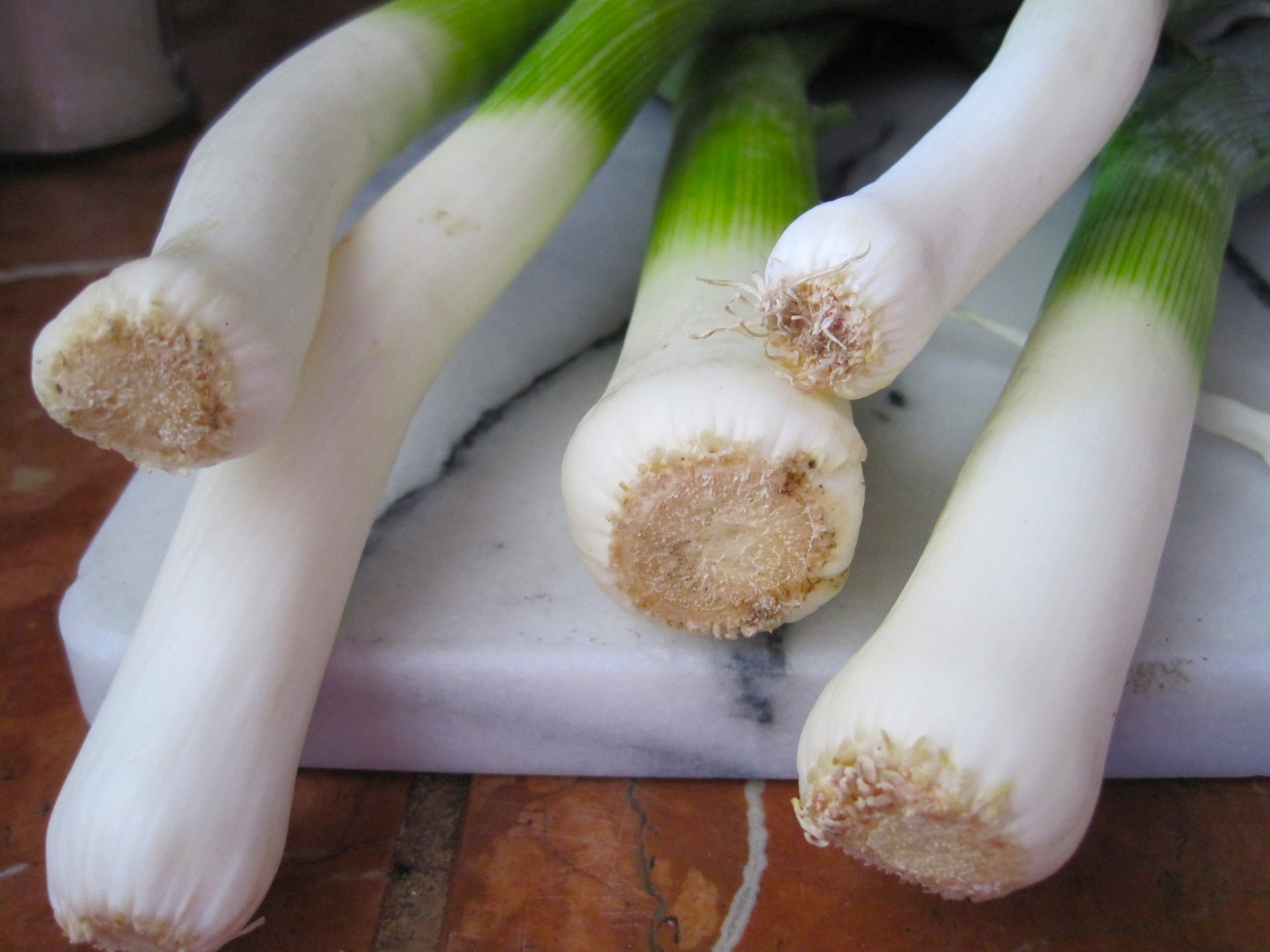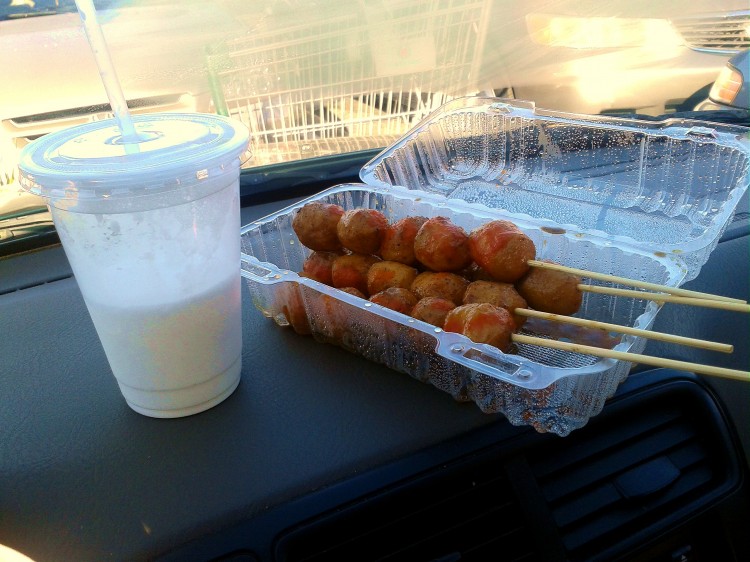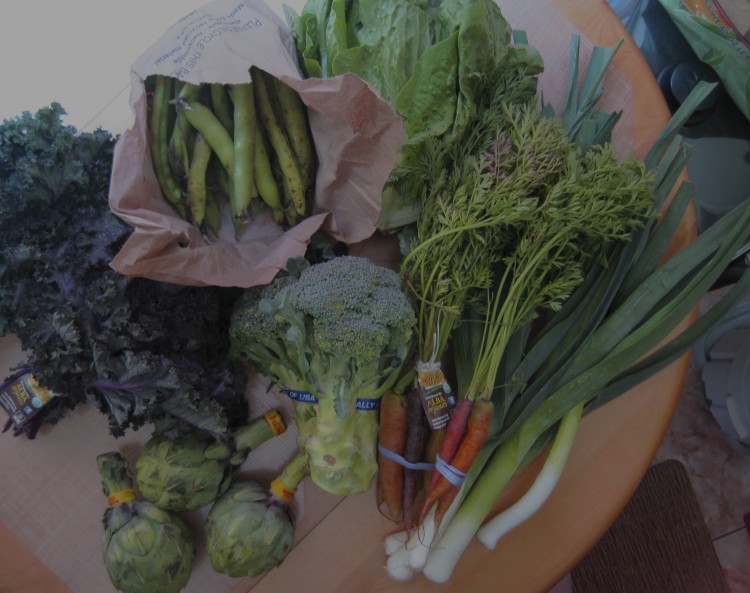
First Essential Organic Veg box from Albert & Eve
I finally bit the bullet and ordered a semi-weekly home-delivered organic produce box. AKA a “CSA box,” with the CSA referring to community-supported, or community-shared, agriculture.
Not only will this encourage the fam to eat more veggies, it will almost ensure that we do. No way I’m going to throw food out.
It will also serve as the muse for a multi-part series here, which may be helpful to readers who want real life information about CSAs before taking the plunge.
Choosing a first CSA in the SF Bay Area is no easy task. Ask 20 people, get 20 opinions. Look on the Web, get another 20,000.
I went with Albert & Eve. After considerable research. They have a loyal client base and support local, small-scale farms. They also offer home delivery. Not all CSA entities do. With some you have to select a local pick-up point.
I just want stuff to show up on my porch — no car, no parking, no schlepping.
How does a CSA actually work?
I’ll get to the nitty-gritty of CSAs as I write this series but, in a nutshell, one can subscribe to single-farm CSAs or co-ops, or get their produce from a middleman-type organization, which either partners with farms or purchases fruit and veg outright for distribution to subscribers. There are numerous types of arrangements.
I was looking for a small operation offering local organic produce (we’ll get into what “local” means in the next installment, but know that this term can be a slippery-slope) with solid agricultural values. Albert & Eve fits the bill. The company (it’s not a farm, but a distributor, though the term doesn’t do justice) partners with Agricultural & Land Based Association (ALBA), really does source locally, and offers eggs and a few other select goodies.
They also allow you to choose what you want from among what they believe they will have available. Because this is seasonal eating, it doesn’t mean you can ask for peaches instead of apples in January, but it does mean you can tell them “enough, already!” with the leeks and to send you more fennel instead. Provided they have it. Again, this is not stuff cranked out in a factory. You have to be flexible.
There are some huge, corporate-type CSAs around here. I didn’t want that. I like the personal touch. I want to know the people behind the operation. I want to count to them.
Organics and cost
Now, organic produce ain’t cheap no matter how you buy it. A CSA subscription, however, allows you to get the freshest local organic produce delivered to your door — or a drop-off point — at a very reasonable price. Depending upon the CSA, you’re looking at about $20 to $35 per box in the SF Bay Area, which provides 3 or 4 people with vegetables and fruit for a week. If you take just veggies, as I have, you’ll be able to throw in a couple vegetable main courses along with sides.
I’m paying $33.20 per box, which arrives in a paper bag, in fact, so there is no dealing with boxes. The price includes the cost of their Essential Organic Veg Box, and the surcharge for feeding more people, which means they give you extra of each item. The box officially contains 6 types of vegetables, but I got 7 this time.
Many CSAs offer small and large boxes, so you can choose based on your needs. Some offer more flexibility that others. Do your research.
If you buy cheap conventional produce at Safeway, CSA subscription prices may bring on sticker-shock. Perhaps you’ll realize, by and by, that it’s worth the extra. Organic produce involves no chemicals or synthetics. It’s not genetically modified. Sure there are studies claiming that conventional produce is “just as safe” as organic. For me, though, it’s about common sense. If you offer me an artichoke from a plant treated with Supracide 25 WP, and one from an organically-grown plant, I’ll take the one without the chemicals, please. Wouldn’t you?
Tips and things to think about if you go CSA
Make sure you have a salad spinner on stand-by. A good one. Why? Now and then the leafy greens that arrive may contain harmless critters, and the only way to get them off is a good bath. That’s where the spinner comes is. You’ll need to get the water off very well, and nothing does it better.
The other things you’ll need on stand-by are creativity and a sense of humor.
You can’t boil every turnip. You wouldn’t steam every artichoke. You shouldn’t bury all your kale under braised pork shoulder. I do that now and again, but I have a pescatarian in the house, so mostly I can’t.
I’ll be developing new and interesting vegetable recipes to deal with items that might otherwise wear out their welcome — and still may, for all I know. I guess I’ll find out how many leeks my brood can handle in one season.
In the next installment I’ll tell you all about this week’s box, pictured above, and my evil plans for it.

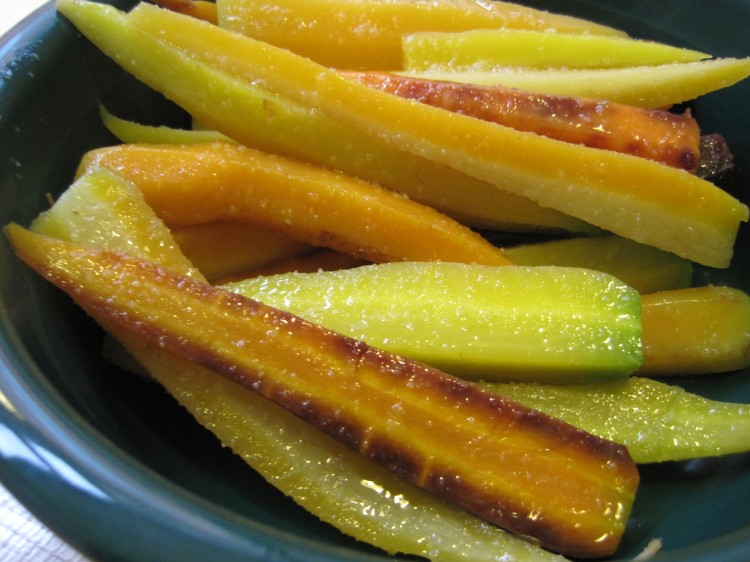

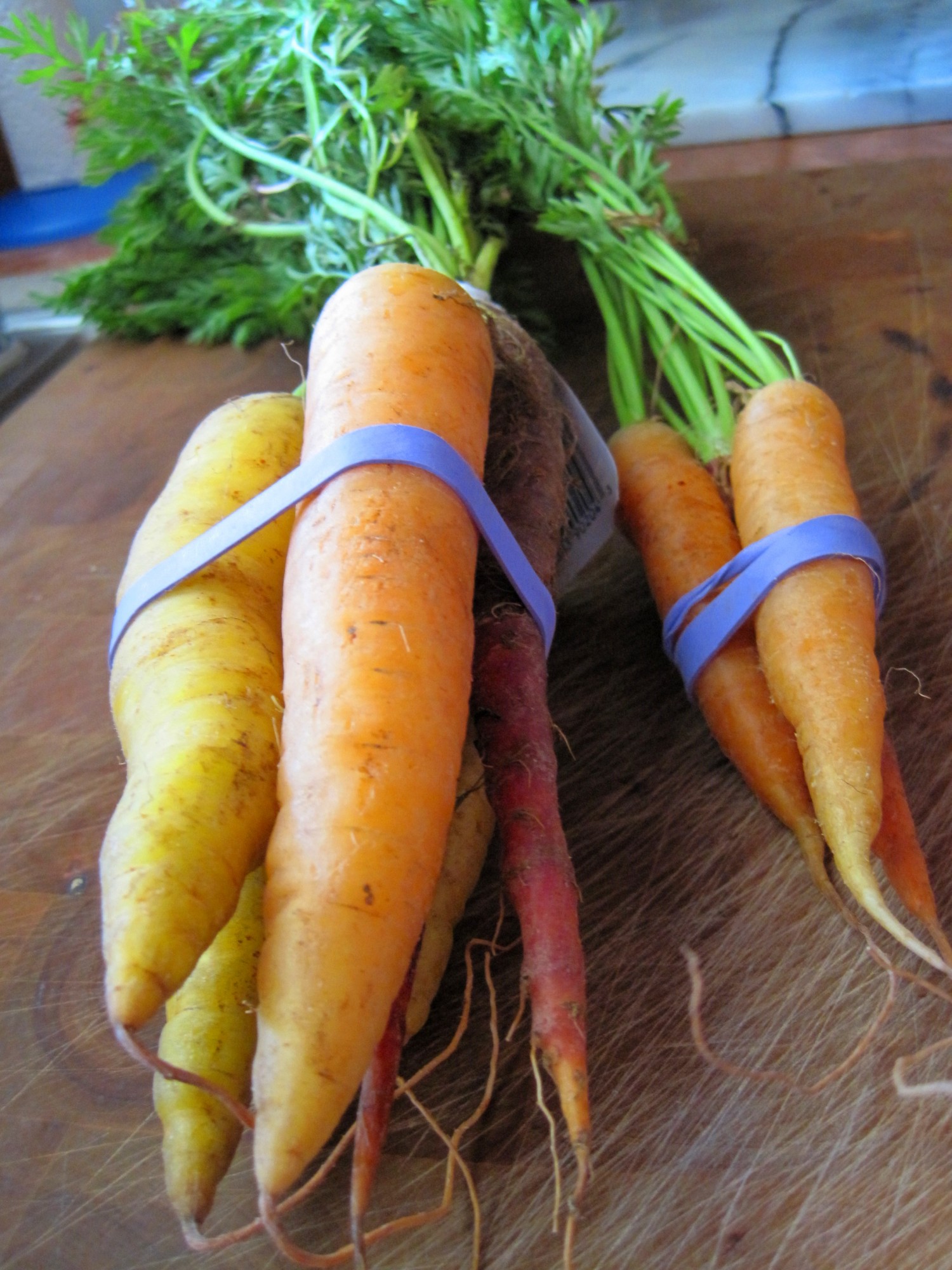
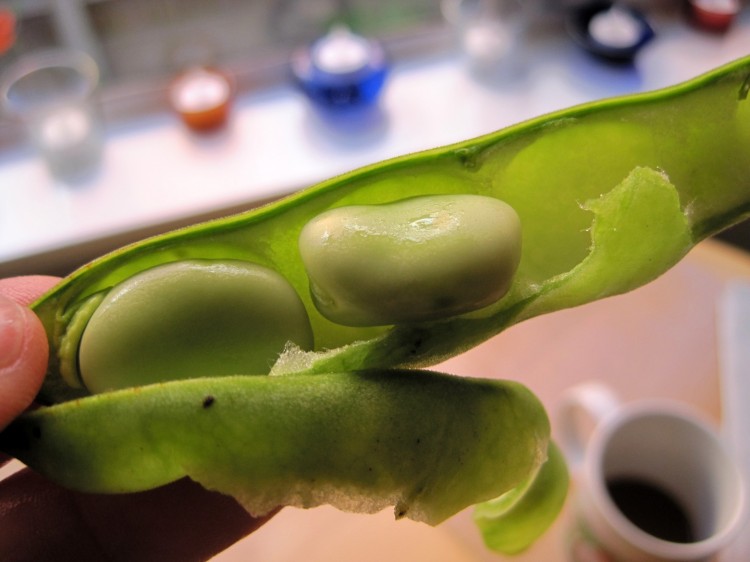
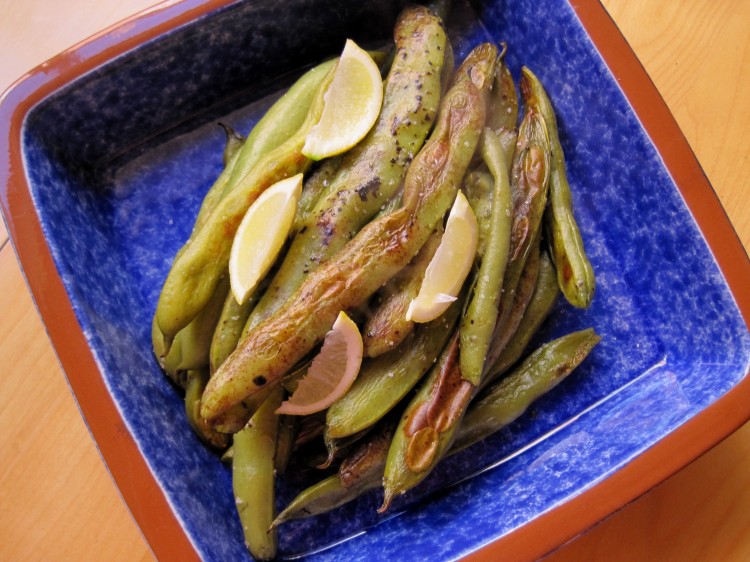
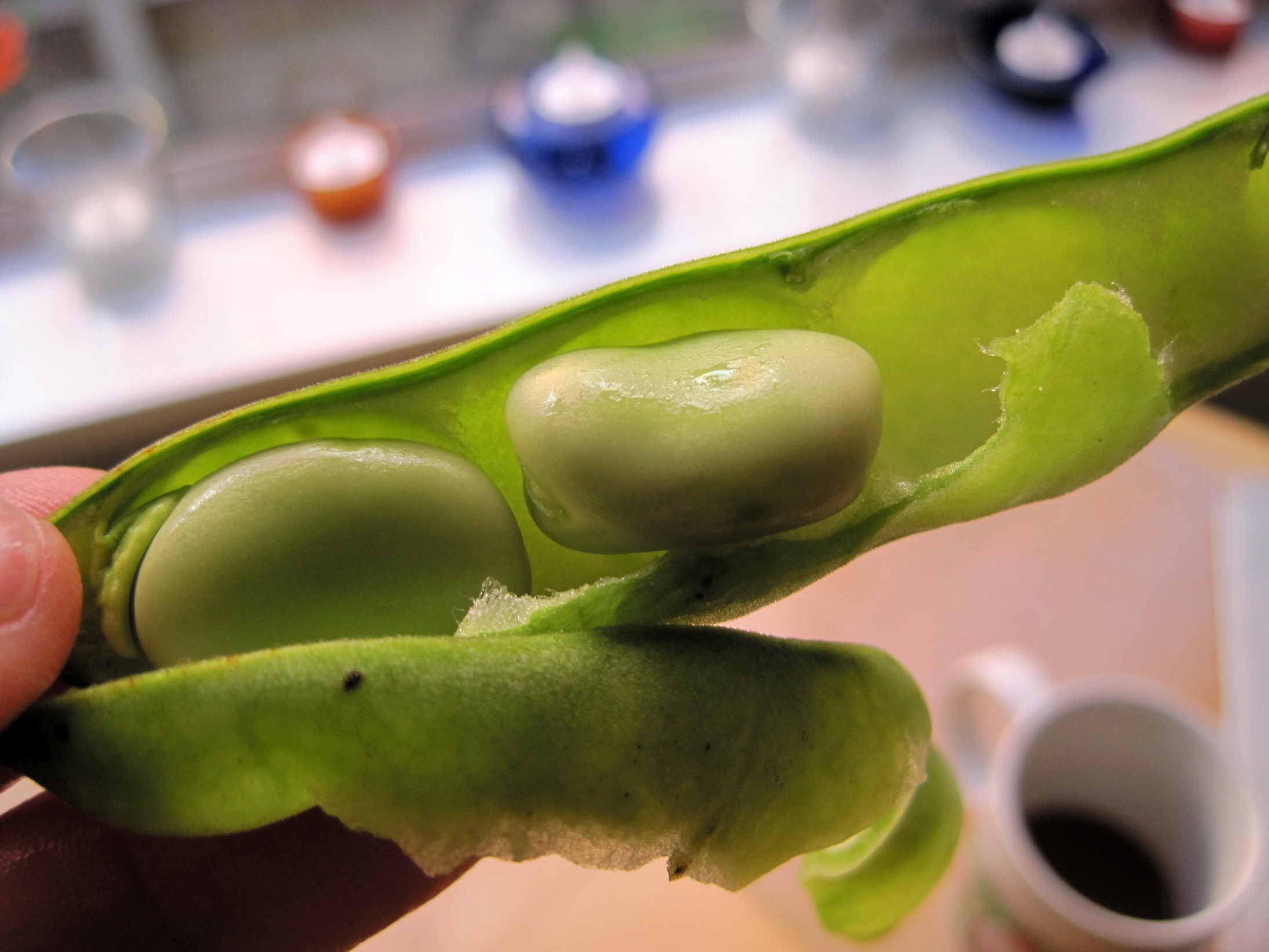
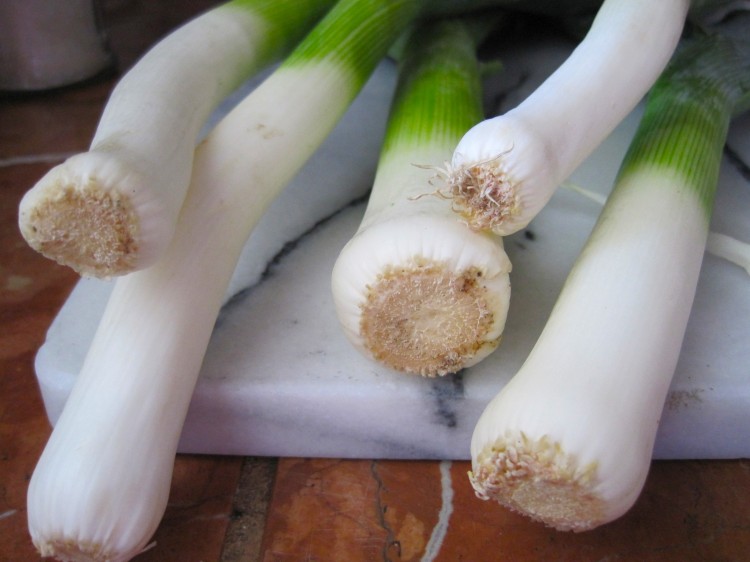
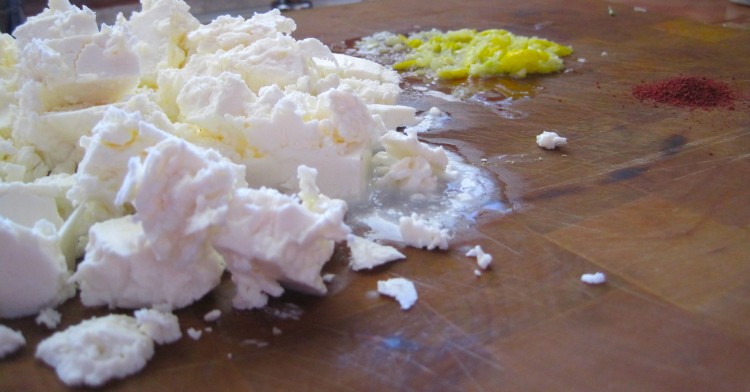
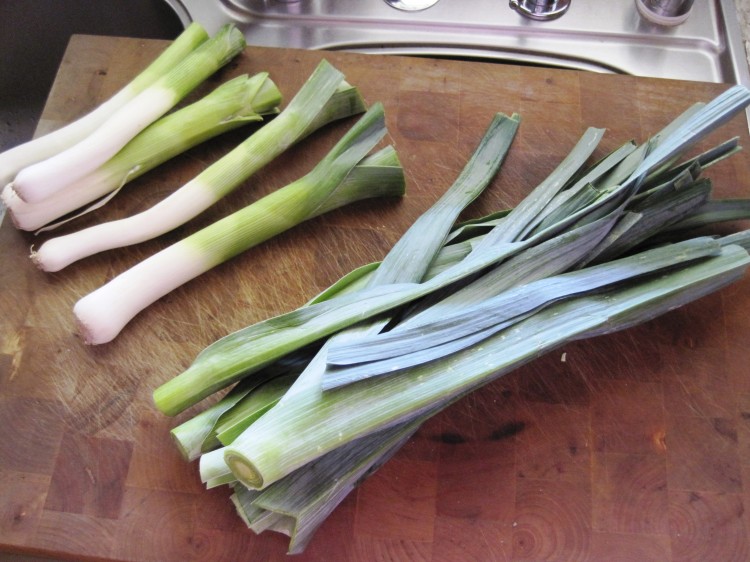
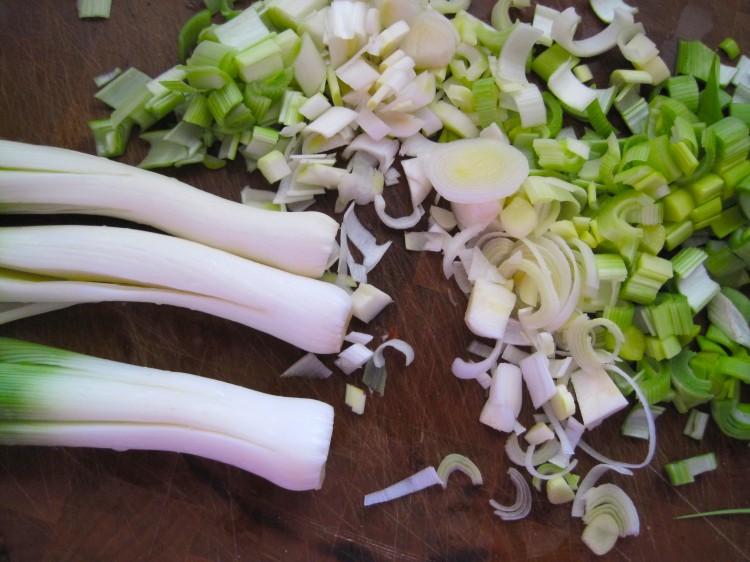
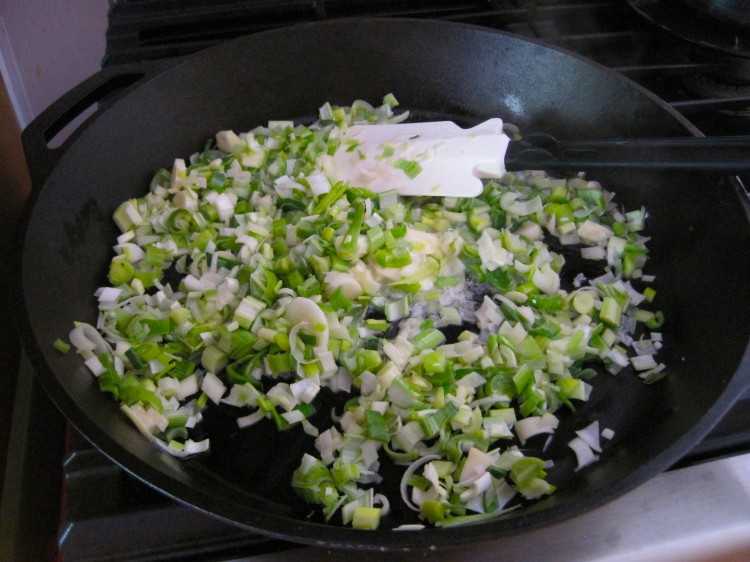
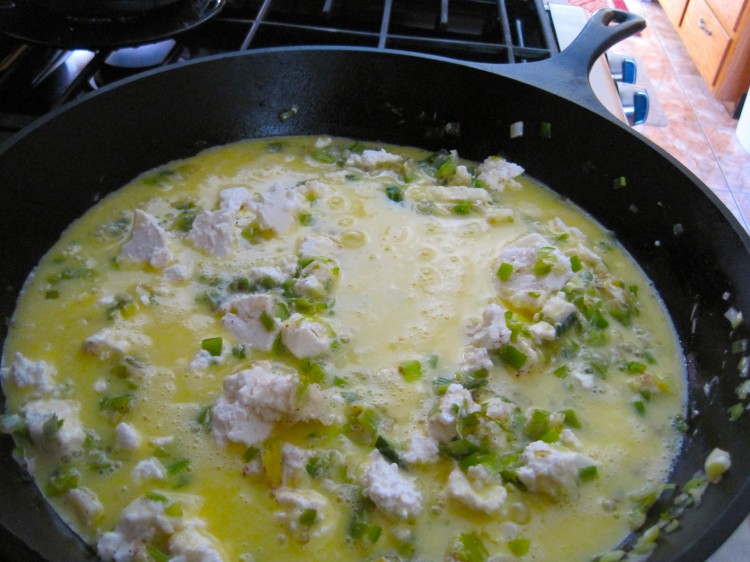 We were so happy about the soft, mildly-oniony scramble that I neglected to photograph the finished product — which we consumed with a side of good toasted bread, which is all you need. The addition of the sumac and lemon added a whisper of citrusy tartness to the salty, creamy, funky feta backbone.
We were so happy about the soft, mildly-oniony scramble that I neglected to photograph the finished product — which we consumed with a side of good toasted bread, which is all you need. The addition of the sumac and lemon added a whisper of citrusy tartness to the salty, creamy, funky feta backbone.